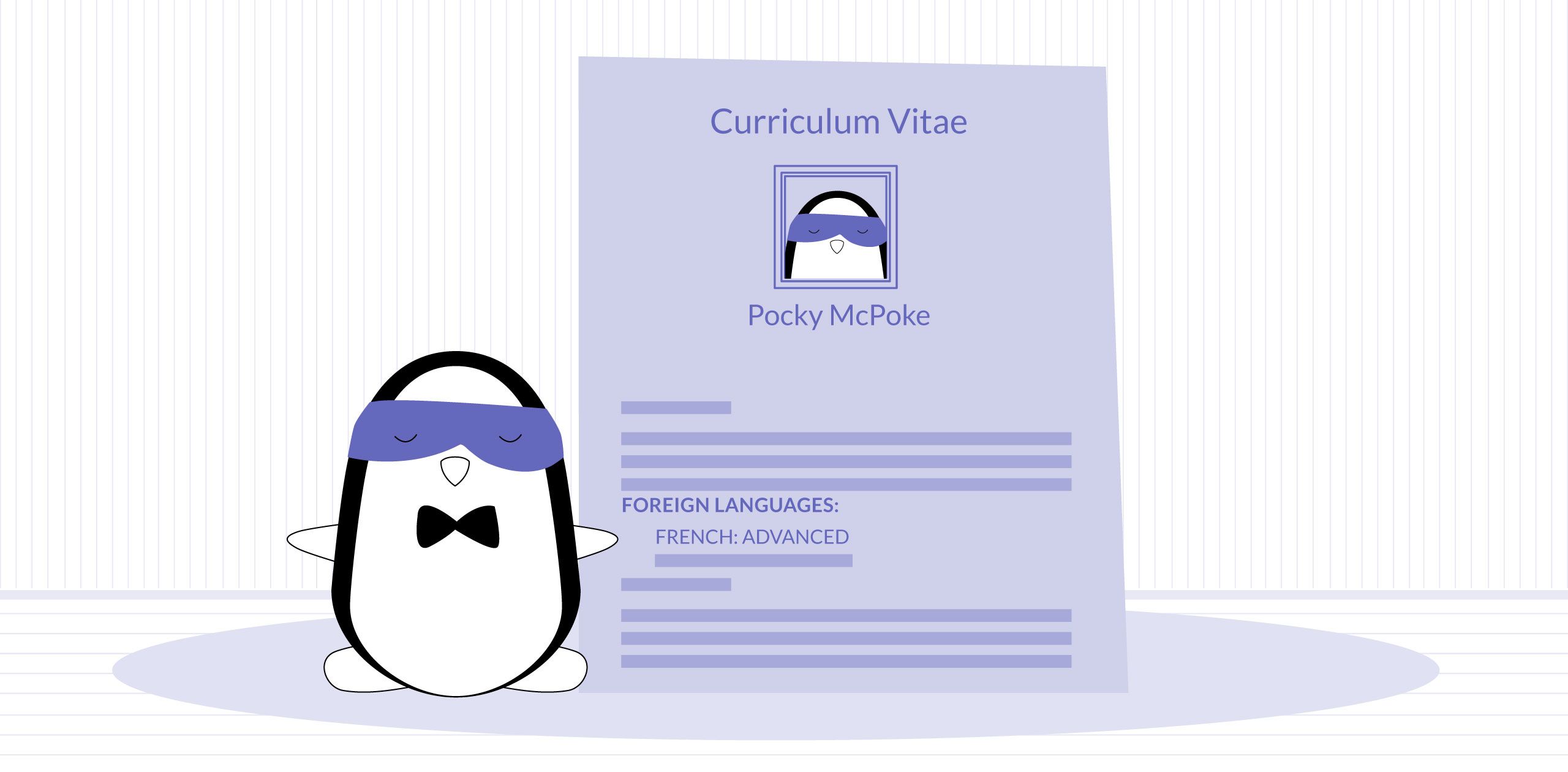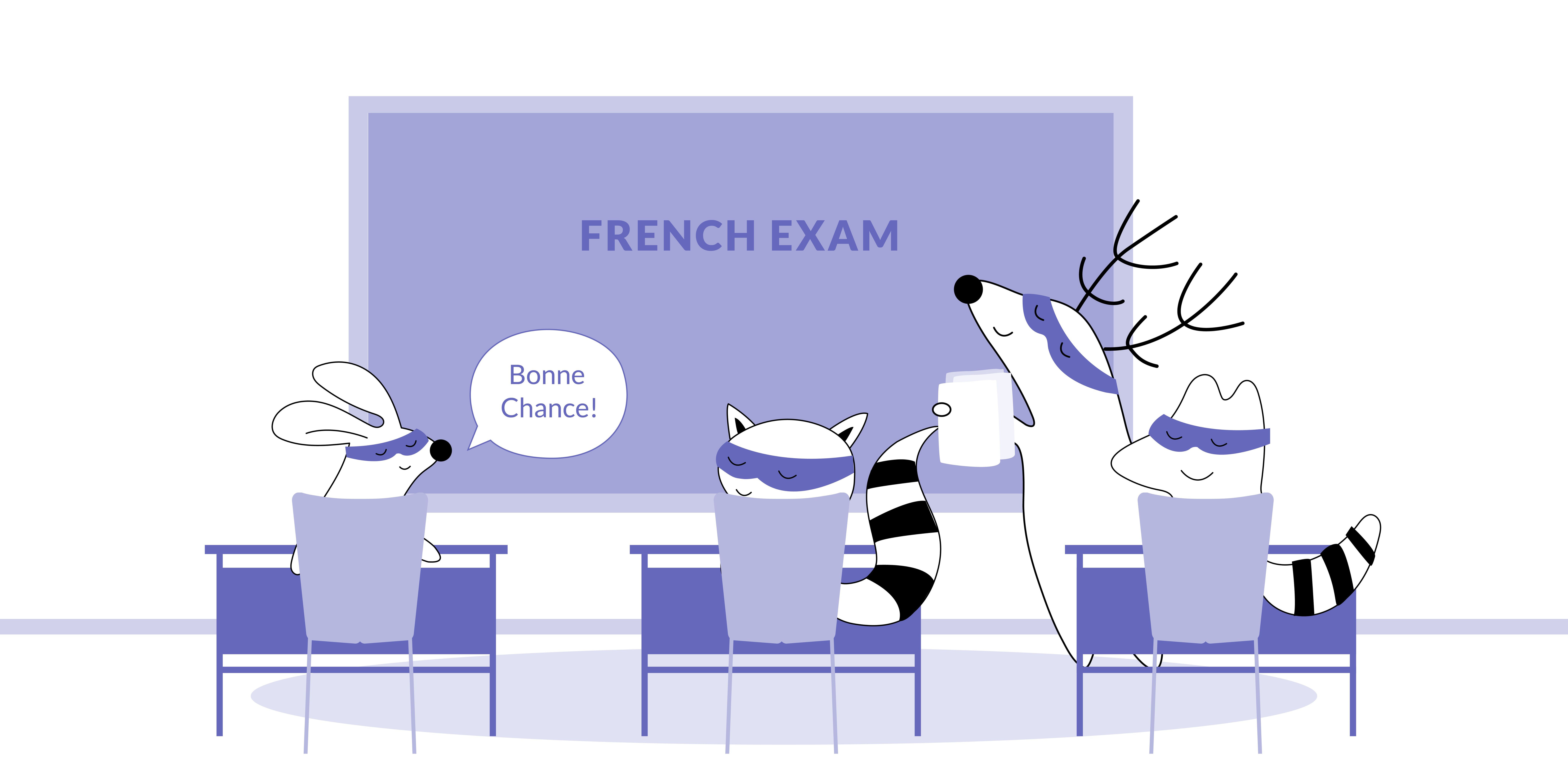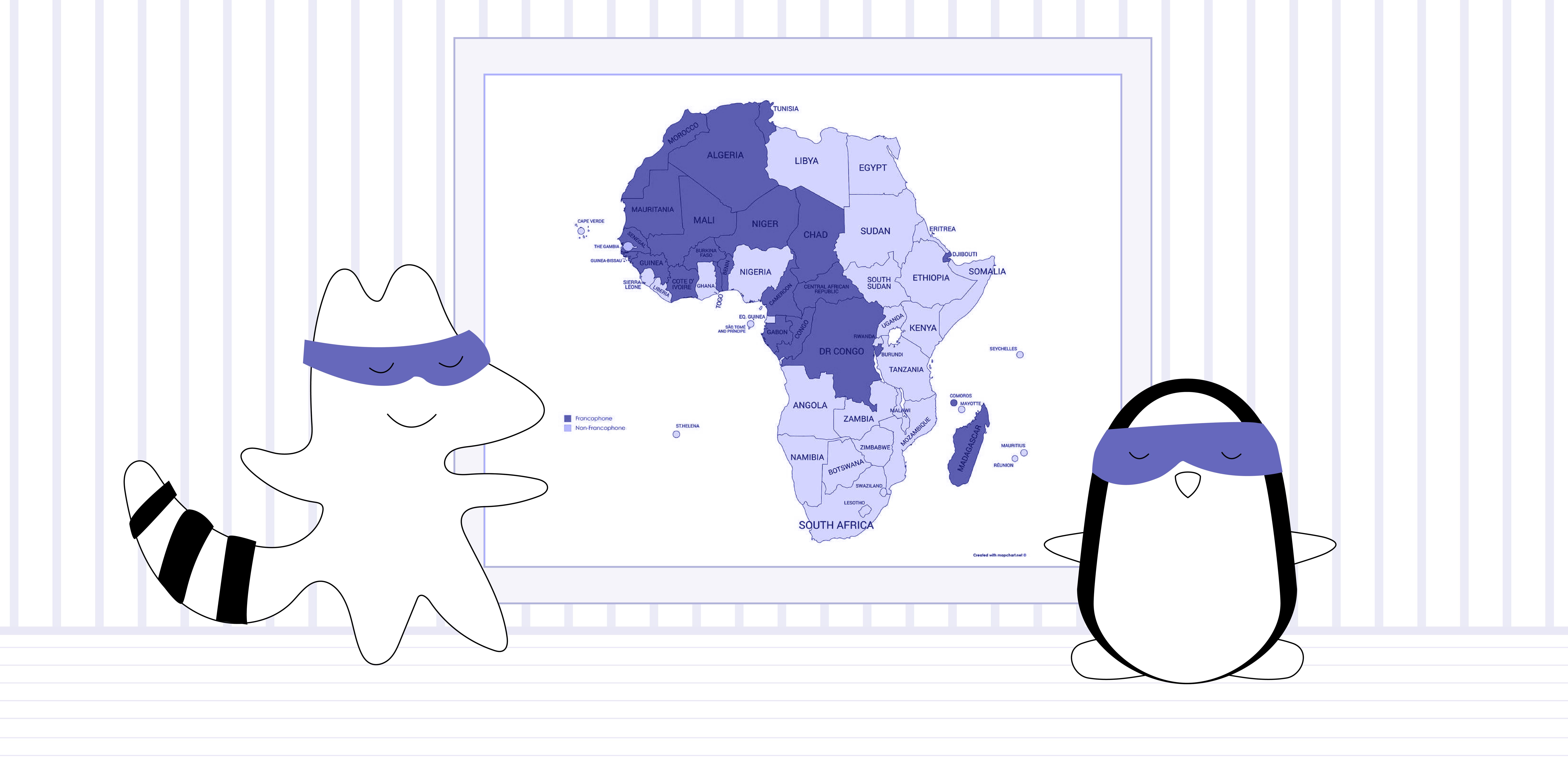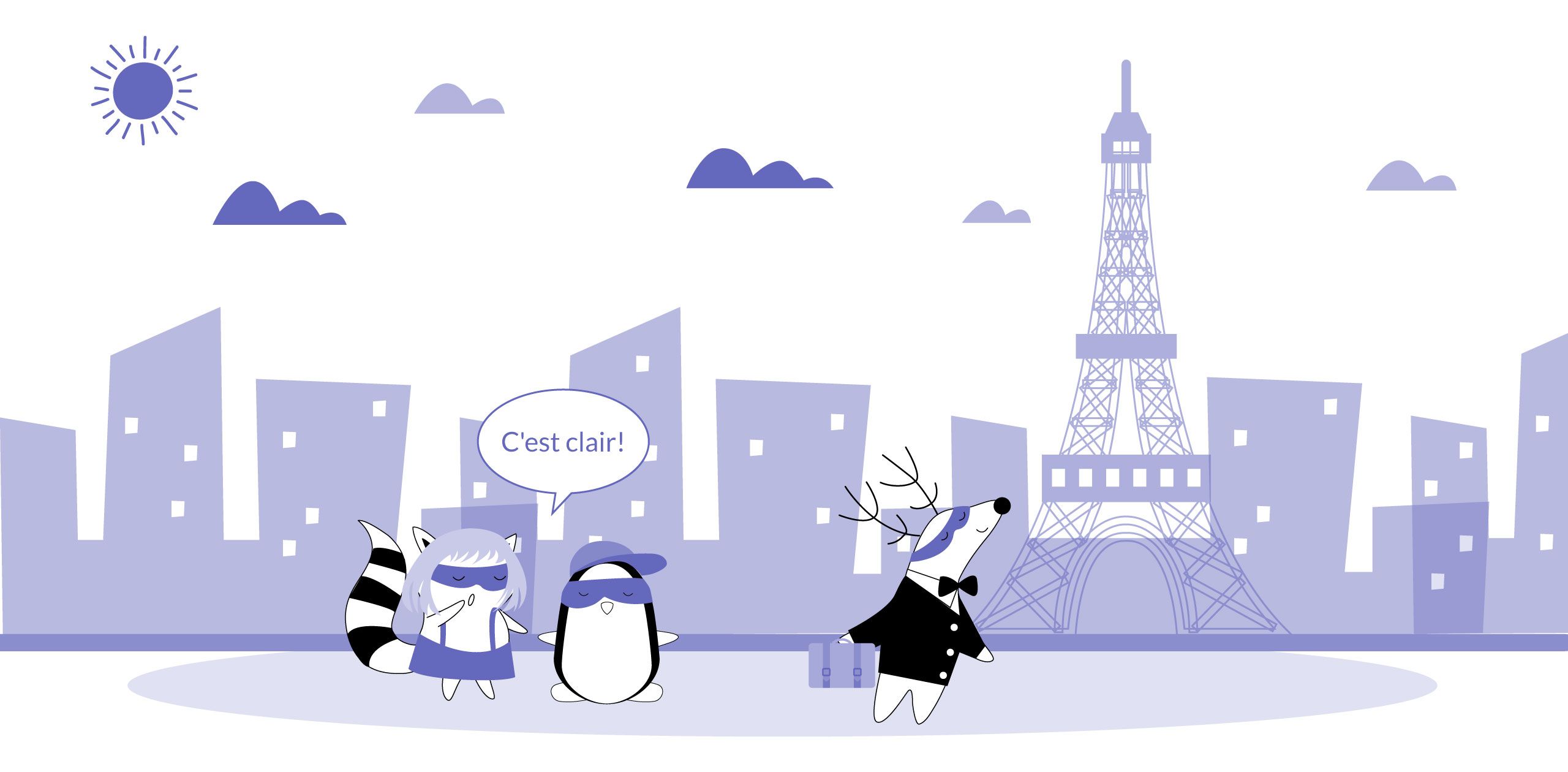
When you're learning a new language, it's important to learn the formal words and expressions first. These are the words that you will use most often in conversation and writing – and they create the base of your language learning journey.
However, if you want to sound more like a native speaker, it's also helpful to know some of the more colloquial expressions. French slang words can vary from region to region, as well as depending on where and by whom it is used.
Of course, learning all the French slang phrases and words may be unnecessary, but knowing the most common ones will definitely give you an advantage in conversations with native French speakers.
In this article, we'll introduce you to some of the most common French slang expressions and words – from those used in texting, to those belonging to the famous Verlan. Read on and learn to express your feelings more like a real French person.
Learn French with Langster
Everyday French Slang Words
In France, as in other countries, slang is an important part of communication. It allows people to express themselves in a more informal way, and shows that they are familiar with the language and the culture. Slang can also be used to show solidarity with a group, or to create a sense of intimacy with others.
There are all sorts of French slang words, but some of the most common ones are listed below. Be warned – using them wrong can cause misunderstandings, so it's best to use them only with people who already know and like you!
French
English
une arnaque
a scam
BG
This is a popular acronym in the common French slang words. It stands for beau gosse, which means a handsome man.
balle
bullet
baraque
a house
bouffer
to eat
bouquin
a book
les bas
socks
blé
money
bordel
a large mess
bobo
an injury
chiant(e)
annoying
une clope
cigarette (This is actually one of the most popular French slang words in Paris.)
darons
parents
draguer
to flirt
déboussolé
disorientated
gerber
to vomit
kiffer
to like something
un mail
an email
une meuf, nana
a woman
Parigo
a Parisian
piquer
to steal
picoler
to drink alcohol
râler
to complain
se planter
to make a mistake
nickel!
perfect!
ouf
awesome
ouais
yes
une piastre
a dollar
un truc, machin, bidule
a thing
un type, un mec
a guy
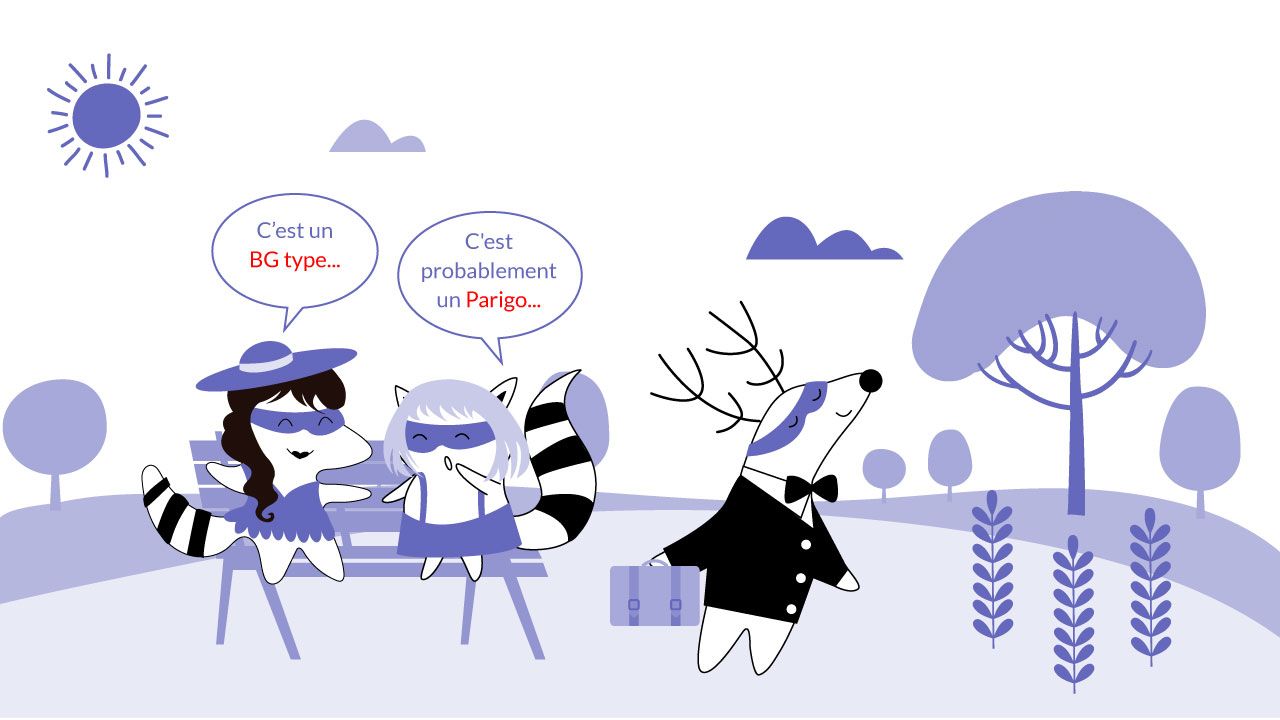
Popular French Slang Expressions
Just like with French slang words, when using popular French slang expressions, it's important to be aware of the context and the situation in which they are used. Some expressions can be quite vulgar, so it's best to avoid them unless you are sure that you know what you're doing.
Here are some of the most common French slang phrases:
French
English
À la bourre
Running late
Flasher sur quelqu’un
To have a crush on someone
C'est de la balle !
It's fantastic!
C'est clair !
You don't say!
C’est nul / C'est naze
That sucks
C’est top
That’s great
C'est un truc de ouf !
That's totally crazy!
Ça baigne?
How are you?
Ça craint
Not cool / It sucks
Ça marche
Ok / It works
Coup de fil
A phone call
Lâche-moi la grappe
Leave me alone / give me a break
Être vénère
To be angry or annoyed
Être au taquet
To be on fire
Ferme ta gueule ! / Ferme-la ! / Ta gueule !
Shut the hell up!
Gueule de bois
Hangover
T'inquiète / Ne t'inquiète pas
Don't worry
Laisse tomber
Let it go
Mon œil
I don’t believe it
Pas pire
Not bad
Je me casse
I’m out of here
Sans déconner
No joke, not kidding
Se bourrer la gueule
To get drunk
Les doigts dans le nez
A piece of cake
Je suis grillé
I’m toast (this French slang expression has the same meaning as the English translation)
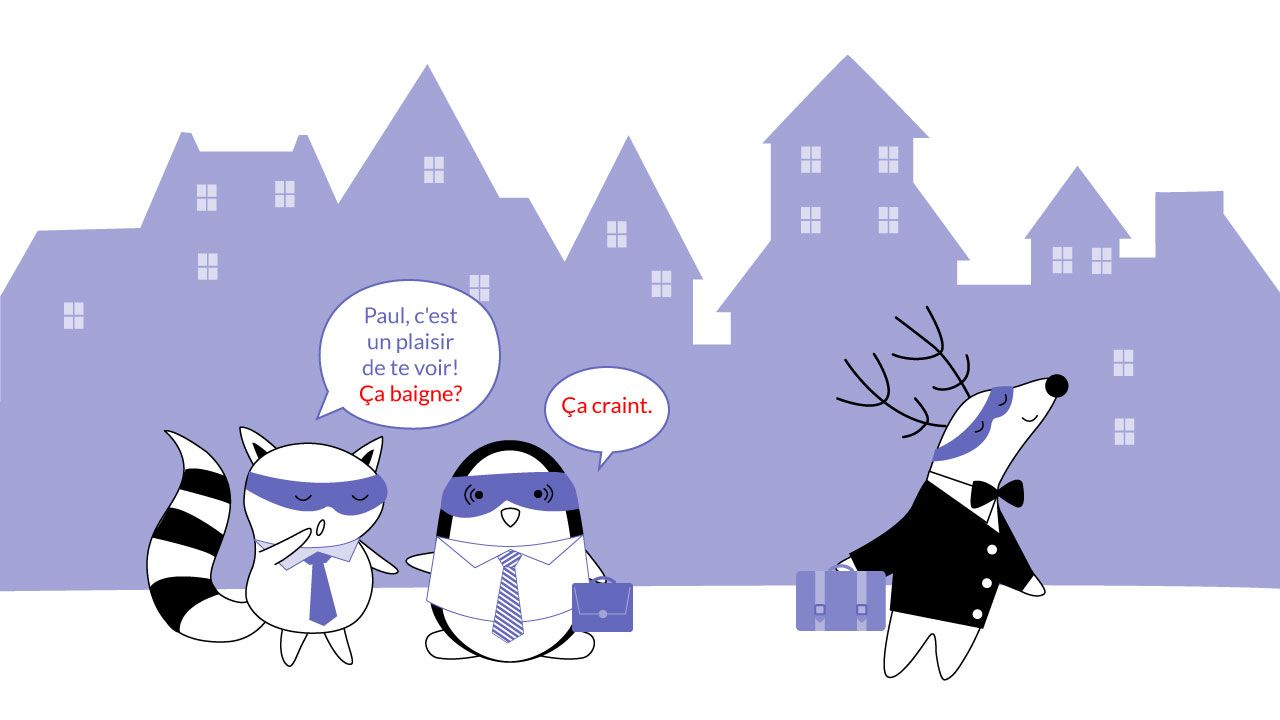
French SMS Slang
In recent years, SMS slang has become increasingly popular in France. This type of slang is often used by young French people, and consists of abbreviations or acronyms that are used to make writing texts quicker and easier.
SMS slang can be difficult to understand if you're not familiar with it, but luckily there are some helpful resources that can explain it. Here are a few examples of commonly used SMS slang words and phrases:
| Slang | Transcript | Translation |
|---|---|---|
| A2M1 | à demain | talk to you tomorrow |
| auj | aujourd’hui | today |
| a+ | à plus tard | talk to you later |
| aprem | après matin | afternoon |
| bjr | bonjour | hello |
| bsr | bonsoir | goodbye (good evening) |
| bcp | beaucoup | a lot |
| biz | bises | kiss |
| cad | c’est-à-dire | that is to say |
| dsl | desolé | sorry |
| dak | d’accord | OK |
| Je t’m | Je t’aime | I love you |
| jms | jamais | never |
| stp | s'il te plaît | please |
| slt | salut | hi |
| tkt | ne t'inquiète pas | no worries |
| K29 | quoi de neuf | what’s up |
| mdr | mort de rire | lol |
| - | ||
| pq | pourquoi | why |
| ptdr | pété de rire | rofl (rolling on the floor laughing) |
| qq1 | quelqu’un | somebody |
| rdv | rendez-vous | meeting |
| Ton 06 | - | Your phone number (06 refers to the fist two digits of a French mobile number) |
| toutafé | tout à fait | absolutely |
| tjs | toujours | always |
| tmtc | toi même tu sais | you know what I mean |
| wétu | où es-tu | where are you |
| Slang | Transcript | Translation |
|---|---|---|
| A2M1 | à demain | talk to you tomorrow |
| auj | aujourd’hui | today |
| a+ | à plus tard | talk to you later |
| aprem | après matin | afternoon |
| bjr | bonjour | hello |
| bsr | bonsoir | goodbye (good evening) |
| bcp | beaucoup | a lot |
| biz | bises | kiss |
| cad | c’est-à-dire | that is to say |
| dsl | desolé | sorry |
| dak | d’accord | OK |
| Je t’m | Je t’aime | I love you |
| jms | jamais | never |
| stp | s'il te plaît | please |
| slt | salut | hi |
| tkt | ne t'inquiète pas | no worries |
| K29 | quoi de neuf | what’s up |
| mdr | mort de rire | lol |
| - | ||
| pq | pourquoi | why |
| ptdr | pété de rire | rofl (rolling on the floor laughing) |
| qq1 | quelqu’un | somebody |
| rdv | rendez-vous | meeting |
| Ton 06 | - | Your phone number (06 refers to the fist two digits of a French mobile number) |
| toutafé | tout à fait | absolutely |
| tjs | toujours | always |
| tmtc | toi même tu sais | you know what I mean |
| wétu | où es-tu | where are you |
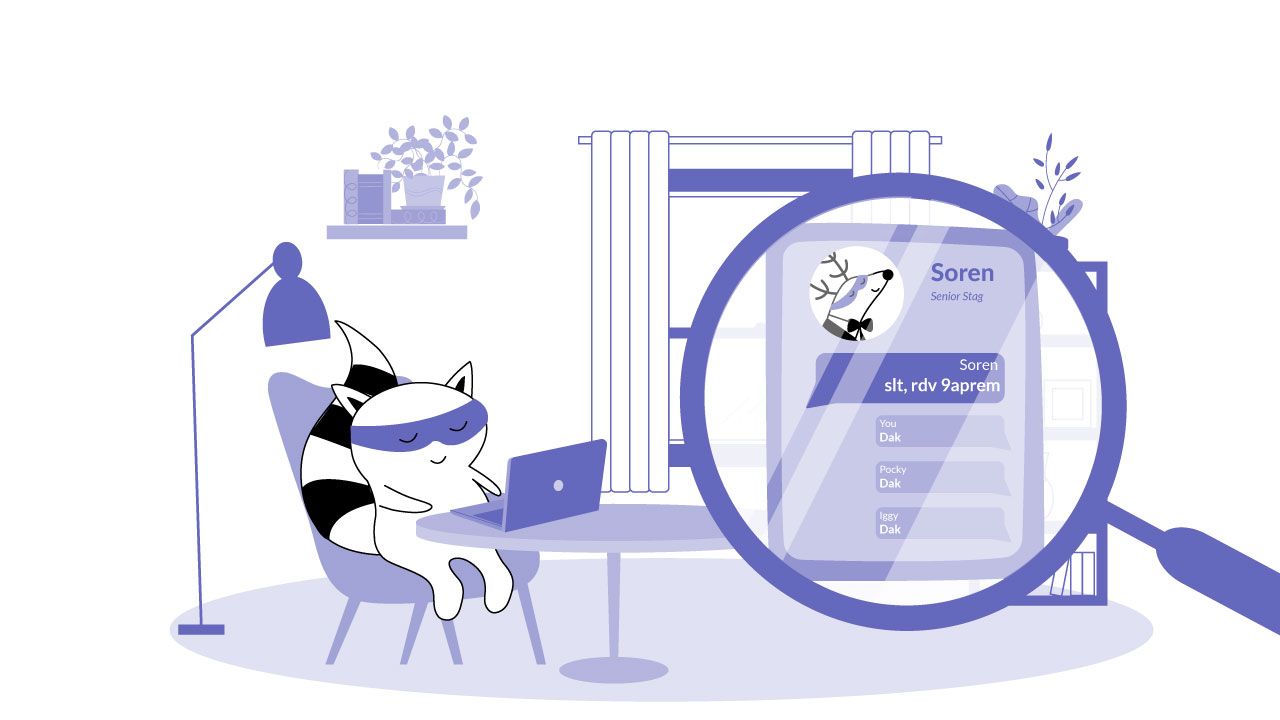
Le Verlan
Le verlan is a type of French slang in which words are reversed. It is similar to “Pig Latin.” You may have already read about it before – for example, in a previous post we talked about the French word “cimer” which is verlan for “merci.”
Verlan is often used by young people, and can be difficult to understand if you're not familiar with it. But even though we don’t recommend focusing on verlan too hard at this point of your language journey, it’s important to get familiar with some modern French slang words belonging to this group. Here they are:
Example
Explanation
Céfran
Français – French
Cimer
Merci – Thank You
Oim
Moi – Me
Oit et Oim
Toi et moi – you and me
Ouf
Fou – great
Meuf
Femme – Woman
Reuf
Frère – Brother
Reum
Mère – Mother
Teuf
Fête – Party
Vénère
Énervé – Angry
Tromé
Métro – Metro
À donf
À fond – thorough
À oilpé
À poil – naked
La tof
Photo – picture
Le iep
Le pied – foot
Teubé
Bête – stupid
La barbe
Le beubar – beard
Kéblo
Bloqué – to be stuck
French Regional Words
The French language is full of regionalism and expressions, and sometimes, that can cause a lot of problems – take, for example, the issue of pain au chocolat (or chocolatine). Some of such words can be difficult to understand if you're not familiar with them, and some need to be used carefully.
Check this short list and make sure that you’re able to communicate with people not only in Paris, but in other French cities as well:
a pencil:
- un crayon gris (in southern France)
- un crayon de bois (in northern France)
- un crayon (everywhere else)
a pen:
- un Bic (Belgium and Kinshasa, DRC)
- un crayon (commonly used in Quebec for “pen” although it also means “pencil”)
a plastic bag:
- une poche (in southwestern France)
- un pochon (in small regions of central and western France)
- un sachet (near the French-German border)
- un cornet (in Switzerland)
- un sac en plastique (understood throughout France)
a chocolate croissant:
- une chocolatine (in Quebec and in the Toulouse region of France)
- un petit pain (in northern France)
- un pain au chocolat (in the rest of France)
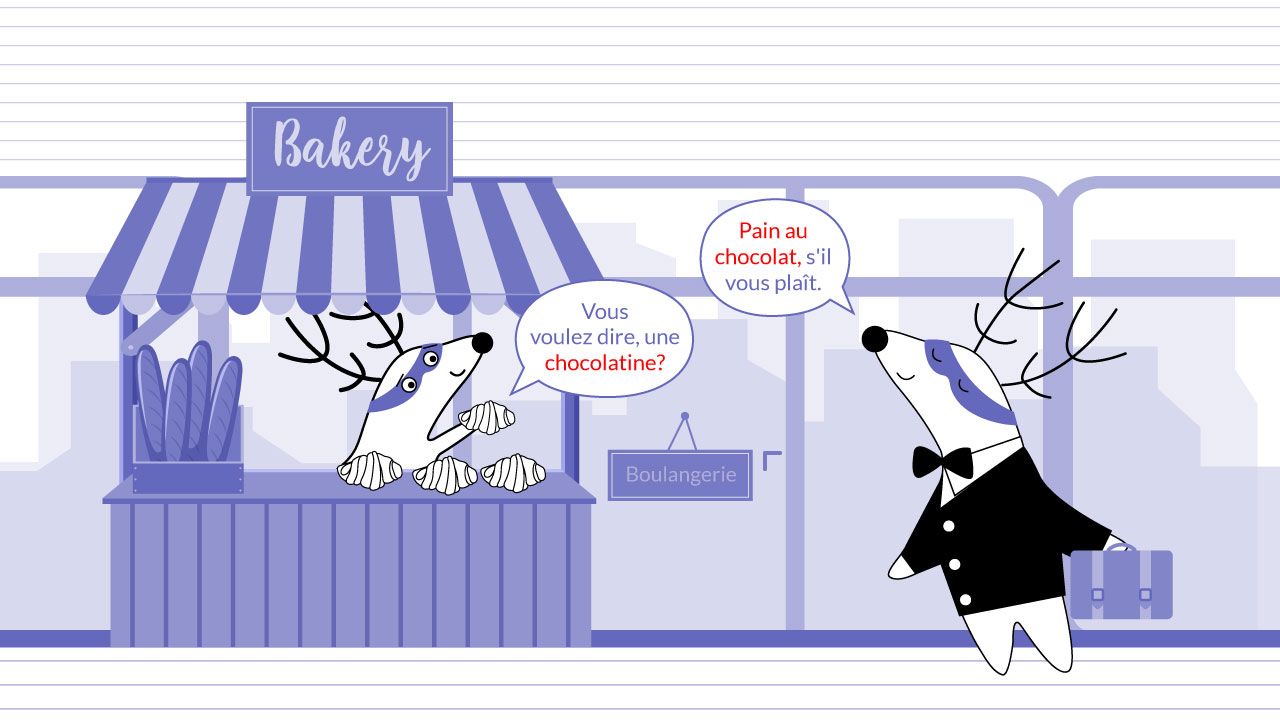
shoes
- les baskets (in France – refers only to trainers/running shoes)
- souliers (in Quebec – refers only to everyday shoes. Considered an old-fashioned word in France)
- les chaussures (understood throughout the French-speaking world)
a bill
- une addition (in France)
- une facture (in Quebec)
Final Thoughts
As you can see, there are many different words and expressions used in various parts of France. If you want to be able to communicate with people from all over the country (and beyond), it’s important to broaden your vocabulary and learn as many regional and slang expressions as possible.
Of course, this is a daunting task, but don’t worry – we’re here to help! Make sure to check our website for more language learning content (for example, read about the French swear words), and download our app to make your language learning journey a little more interesting. With a little practice every day, you’ll be fluent in no time!







